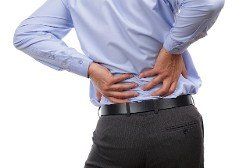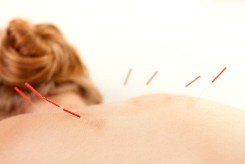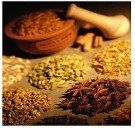Acupuncture is just one of the therapies used by Traditional Oriental Family Medicine.
How does Acupuncture work?
It has been scientifically determined that all human beings possess a unique bioenergetic system. According to Oriental Medicine, a vital energy (called Qi in China) flows along pathways in the human body. These pathways form links to the organs, muscles, nerves and the immune system. This vital energy keeps the blood circulating, balances the body, and helps it to fights disease.
How many treatments will be required?
The number of treatments will depend on each individual and also on which particular conditions are being treated. Normally only a few treatments are necessary. More chronic conditions may require longer treatments.
Do you use other therapies?
Yes. Acupuncture is just one of the therapies used by Traditional Chinese Medicine. Some of the other modalities that are legally used include the following:
Electric Acupuncture
is a form of acupuncture where a small electric current is connected to the acupuncture needles. This treatment is most often used on chronic conditions and for patients who do not respond to routine acupuncture treatment.
Moxibustion
is an Ancient Chinese Medicine technique that uses the burning of mugwort, a small, spongy herb, to facilitate healing. Moxibustion has been used throughout Asia for thousands of years. It increases blood flow and promotes healing. It is especially effective for child or adult earache pain, and chronic inflammation and pain.
Nutrition We may be able to live without herbs or drugs but we cannot live without food and nutrition. We only use Pharmaceutical grade and FDA regulated products. Through Food and Nutritional supplements, we empower you to choose foods that sustain your health, vitality, and nourishment to promote healing.
How does acupuncture help with chronic pain?
There are a lot of research reports that show:
1. Acupuncture reduces affected muscle, nerve and joint inflammation and spasm.
2. Acupuncture stimulates the nerves to release our brain’s nature pain killer called Beta endorphin in order to reduce pain. These chemicals work as the body’s own opiate, lowering pain thresholds.
3. Acupuncture changes cells in connective tissue around the pressure points in lasting ways that lead to less pain. It un-pinches “pinched nerves”.
4. Acupuncture stimulates the vagus nerve, which runs from the brain stem to the spine and to the organs. It may lower inflammation throughout the body. Inflammation is closely tied to chronic pain.
5. Acupuncture relaxes our body’s tension. It helps the body to sleep so it has a chance to heal and reduces pain.
Why might acupuncture be a better option than opioid pain medicine?
1. Acupuncture is very safe without the side effects of opioid pain medicine such as sedation, dizziness, nausea, vomiting, constipation, physical dependence, tolerance, and respiratory depression. Physical dependence and addiction are the biggest concerns of opiate medication.
2. Acupuncture is very effective for some chronic and acute pain. In some cases, acupuncture works even better than opioid medications. Most of our patients who come to us already are taking or have previously tried opioid medications. They said that the opioid medications did not help them at all or gave them only minimal relief.
3. Acupuncture not only provides pain relief but also treats what caused the pain. It provides healing effects. Most of our patients do not need to get acupuncture treatments forever, unlike when opioid are prescribed for chronic pain, because opioid only give temporary relief without any healing effects.






What can I expect when I have a treatment?
During the course of a treatment we use disposable needles. New needles are used for each insertion. We use hair thin needles that usually cause patients to feel some pressure or a warm sensation (which means a natural painkiller is being released). Some patients do not feel anything at all. Normally, patients feel very comfortable and relaxed without any adverse effects or problems. Most acute or chronic pain patients can feel less pain with their 1st treatment. They usually improve steadily each week.
Is acupuncture covered by insurance?
It will all depend on your individual insurance policy. Many insurance companies will now reimburse for your acupuncturist service. Florida-law says that any insurance policy that covers acupuncture provided by a licensed medical doctor must also provide that same coverage to a FL Licensed Acupuncture Physician.
Chinese Herbal Medicine
contains many medicinal substances””primarily plants, but also some minerals and animal products. They are classified by their perceived action in the body. Different parts of plants such as the leaves, roots, stems, flowers, and seeds are used. Usually, herbs are combined in formulas and given as teas, capsules, tinctures, or powders to treat specific illnesses. Generally speaking, the herbs are effective and have less severe side effects compared to many synthetic drugs, if applied/used properly.
Cupping therapy is an ancient Chinese form of alternative medicine. Suction is created by placing special glass cups on the skin to dispel stagnant blood and promote healing. It is used to treat respiratory diseases such as asthma, the common cold, pneumonia and bronchitis. Cupping is also used for back, neck, knee, and shoulder pain as well as other musculoskeletal conditions.
Acu-point Injection Therapy
is a technique performed with FDA approved homeopathic remedies and Vitamins. It is used for stubborn conditions, especially pain that is not responding well to acupuncture, herbal medicine, Cupping, Electric acupuncture and exercise. The products are a sophisticated blend of natural homeopathic remedies, vitamins, minerals and biochemicals. They are based on the homeopathic principle that very small amounts of medicine have a broad effect. They are very effective, safe and have minimal side effects (such as bruising if the needle hits a blood vessel).
N.A.E.T. is a non-invasive treatment to desensitize the body to allergens and re-program the brain and nerve system to no longer react to the allergen. The effect is to eliminate the cause of headaches, migraines, indigestion, eczema, sinus problems, and pain. Many of these are caused by sensitivities to foods or allergens in the environment.
Dry needling vs Acupuncture
Dry needling is Acupuncture. There are many types of dry needling. Some Dry needling practitioners call it Trigger Point Dry Needling which is really Trigger Point Acupuncture or Ah Shi Point Acupuncture. It has been used for over two thousand years to treat pain related disorders. There are some other types of dry needling like integrative dry needling, neural dry needling, and intermuscular dry needling. Acupuncture is not only based on Meridians, but is also based on anatomy, physiology and pathology. Many Chinese people in China call an acupuncture needle a dry needle as opposed to a 'wet' or or hypodermic needle that is used for injections. Dr. He has been practicing and teaching dry needling techniques for the last 30 years and uses dry needling in her practice every day.
You can call me for additional questions at 727-460-1016.
Links






